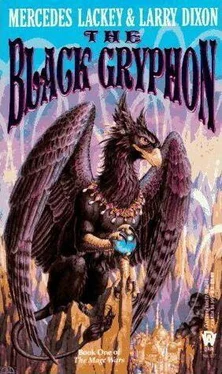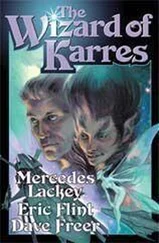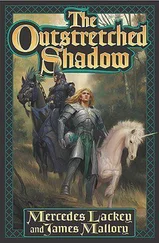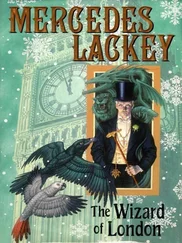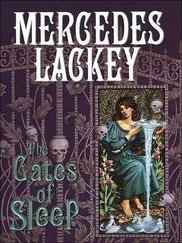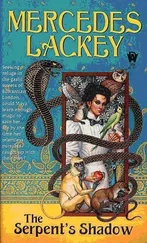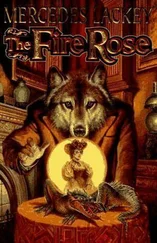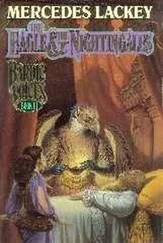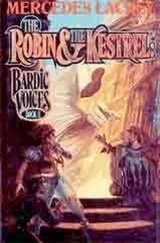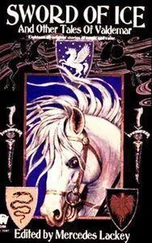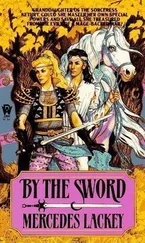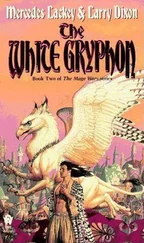Very tangled emotions, he mused. Because although the top layer was a desire to hurt by going publicly to a notorious—or famed, depending on your views—kestra’chern, underneath was a peculiar and twisted desire to flatter. As if by going only to the best and most expensive, he was trying to say to Winterhart that nothing but the best would remotely be a substitute for her.
And another layer—in doing so he equated her to a paid companion, thereby once again insulting her by counting her outside his personal, deeper emotional life. Still, there was that backhanded flattery. Amberdrake was not a bedmate for hire, he was a kestra’chern, a profession which was held in high regard by Urtho and most of the command-circle. Among the Kaled’a’in, he was the next thing to a Goddess-touched priest. The word itself had connotations of divine insight and soul healing, and of friendship. So, then, there was wishful thinking—or again, the desire to impress this “Winterhart,” whoever she was.
There were more mysteries than answers no matter where he turned these days.
“You do know that what happens in this tent depends upon what I decide is best for you, don’t you?” he asked, just to set the record straight. If all the man wanted was exhausting exercise, let him go elsewhere for it.
Amberdrake was massaging the man’s feet, using pressure and heat to ease twinges all through the body, without resorting to any actual Healing powers. Amberdrake had detractors who thought he worked less because of his power to Heal flesh and soothe nerves. His predecessors had used purely physical, learned skills—like this massage—for generations, driven by sharp senses and a clear mind. In his role as kestra’chern, he used his Healing gifts only when more “conventional” skills were ineffective. Still, one did complement the other, and he would use the whole of his abilities if a client warranted it. So far, though, this mere hadn’t warranted it; he hadn’t even warranted the kind of services he would get from a perchi. This was still at the level of banter-and-pose.
“Well . . . urrgh . . . I’d heard that—” He said it as if he hadn’t quite believed it.
“If you aren’t satisfied with that, I can suggest the name of a perchi or two, accustomed to those of rank,” Amberdrake ventured. There was no point in having the man angry; he was paying for expensive treatment, and if he felt he hadn’t gotten his money’s worth, he might attempt to make trouble.
“What you do . . . ah . . . isn’t important now, is it?” the mage replied shrewdly. “It’s what Winterhart thought you did. You are required to keep this confidential, that much I know, so I’ll let her use her imagination. It’ll probably be more colorful anyway.”
Amberdrake was tempted at that point to send the man away. He was right; what he was planning was also very cruel to his lover.
Assuming she didn’t deserve it; she might. He could have no way of knowing.
Amberdrake sighed. There was still his professional pride. He decided to give the man his money’s worth—and to make certain that, as it progressed, as little of it as possible was what the client had anticipated.
Three
“I hope that’s all for tonight, Gesten,” Amberdrake said, as the curtain dropped behind him. He rubbed the side of his nose with his knuckle and sighed. “I’m exhausted. That last client wanted a soft-hammer-massage and an argument. Roster indicated a gentle counseling session.”
“That’s all you’ve got for the night,” Gesten replied, a bit smugly. “The last two made up for all the clients you canceled this morning, since they were straight-pay and not reward-chits. I’d have warned you if I’d known about the last. He didn’t say anything about the hammers; I’d have had them warmed and ready for you if I’d known. He was pretty closemouthed.”
“I’m not complaining. You’d probably have sent him elsewhere if he had said anything; I’m certain he would have made it into an insult somehow.” Amberdrake didn’t elaborate. The last two clients had been, to be charitable, annoying. And since Gesten always discreetly monitored the workroom, he was probably well aware of that. The hertasi simply laid out a clean sleeping robe, simple and unadorned (unlike the robes Amberdrake wore for his clients), and uncovered a plate of army-bread and cheese. Few delicacies appeared in the hands of Urtho’s folk these days, even for those who could afford them; the ones Amberdrake got his hands on he reserved for his clients who often responded well to gustatory pampering. Rumor had it that Urtho himself had given up his favorite treats. One thing there was no shortage of, at least, was water. There was a hot bath waiting in the corner, steam rising invitingly from the frame-and-skin tub.
“Thank you, Gesten,” he said with genuine appreciation.
Amberdrake stripped off his sweat-dampened silks and slipped into the bath, wincing a little at the heat. He was going to look as if he’d been boiled in a few minutes, but it would be worth it to relax his muscles. He recalled, as from a distant past, that before they had packed up their families and herds and moved here, the Kaled’a’in had created hot springs where they settled, if there were none there already. But much had changed; mage-created hot springs required an enormous expenditure of magical energy, and that was now a luxury no one could afford.
The war tried to eat up everything in its path. For Amberdrake and those who supported the warriors, it was the war they fought, not the army, spells, and makaar. This was the way many of the warriors saw it, too—saw war as a natural enemy, to be dealt with firmly and then put behind you. But war’s devouring power was why Urtho had tried to avoid it for so long—why he had successfully avoided it until it came to his very doorstep. Folk from northern climes referred to the people of the South as “civilized”; it had little to do with their technologies and powers, but far more with their philosophy—and they were as pragmatic as they might be idealistic. When Ma’ar’s army threatened at the border, opposition was there to meet it.
That was why Amberdrake’s services, which in peacetime would have been divided between the wealthiest of outsiders and the needs of his own people, had been volunteered to be the reward for heroes. . . .
And as the very expensive indulgence for those whose egos demanded the best.
That thought brought him uncomfortably right back to that mere mage, a man whose cold soul he had been unable to warm. Most of the mages in Urtho’s forces were there because they felt Urtho’s cause was right, or because they honored Urtho as one of the greatest Adepts ever born and hoped to be able to learn from him as they helped to defend his land. Or simply because they hated Ma’ar, or their own lands or overlords had been destroyed by the rapacious conqueror. Few fought in this army simply for the money.
This man, Conn Levas, was one who seemed to care only about the money. He had few friends and few interests outside his own skill and power. He was, in fact, one of the most monofocused people Amberdrake had ever seen: a narcissist to a high degree. Everything for him was centered around how he could increase his personal wealth and prestige. To him, the war was a convenient way to do that. Urtho was the master to serve because Urtho gave his mages much more autonomy and better rewards than Ma’ar.
Still, it was that kind of focus that made the hunting beasts of the world so successful, so perhaps he shouldn’t be faulted for it. But how a Kaled’a’in woman had ever become his lover, Amberdrake could not guess.
Читать дальше
